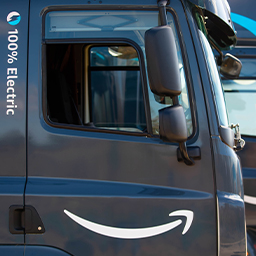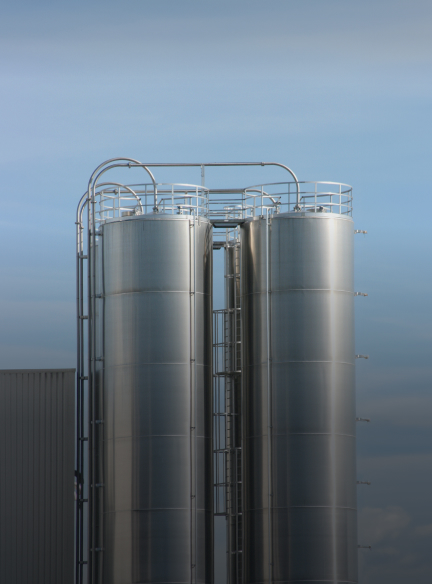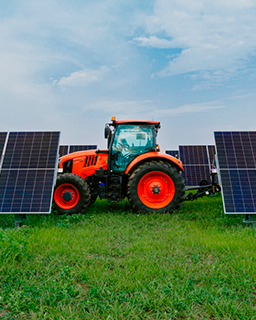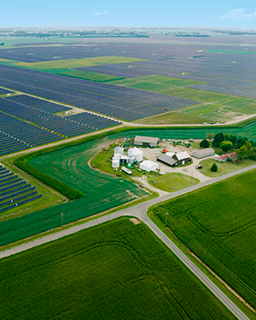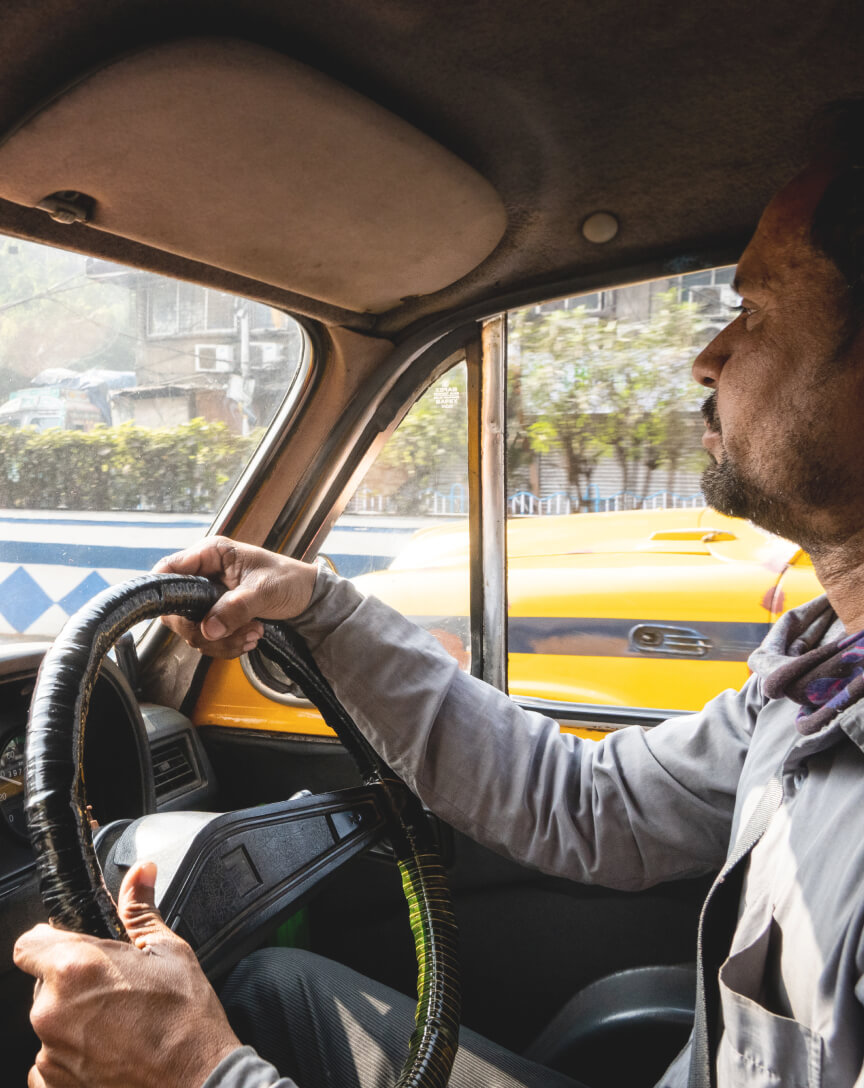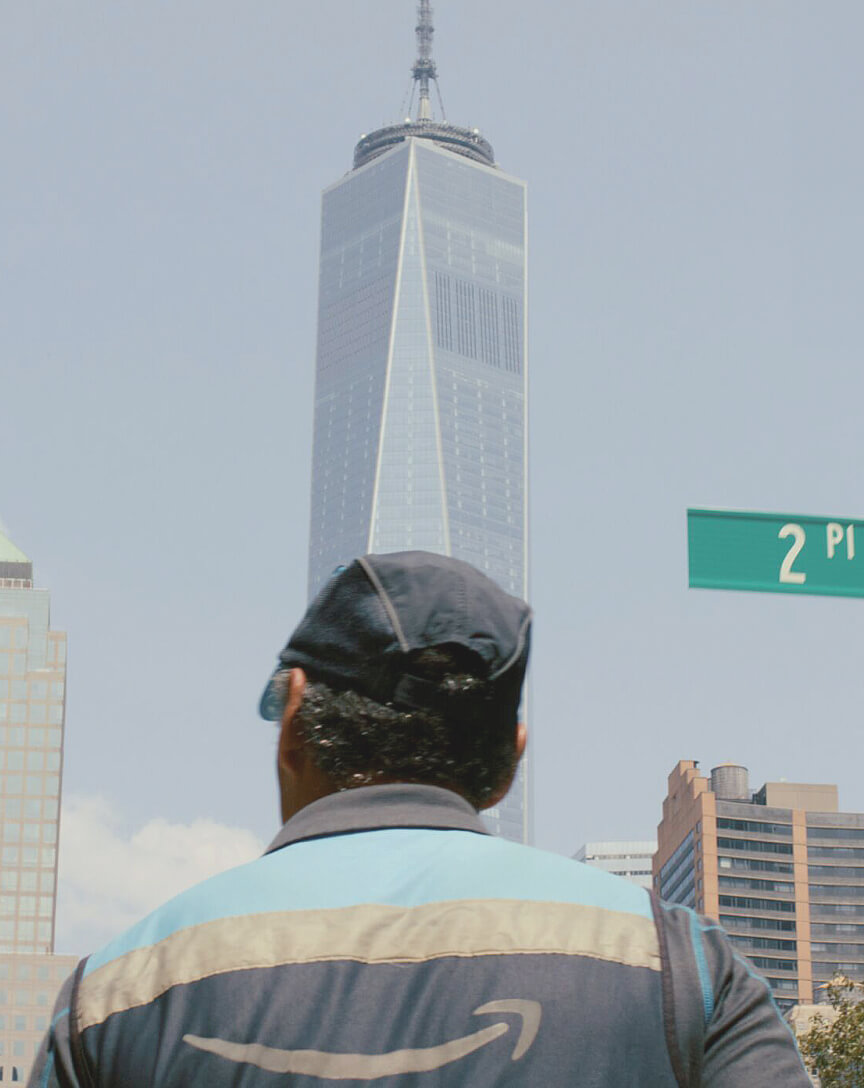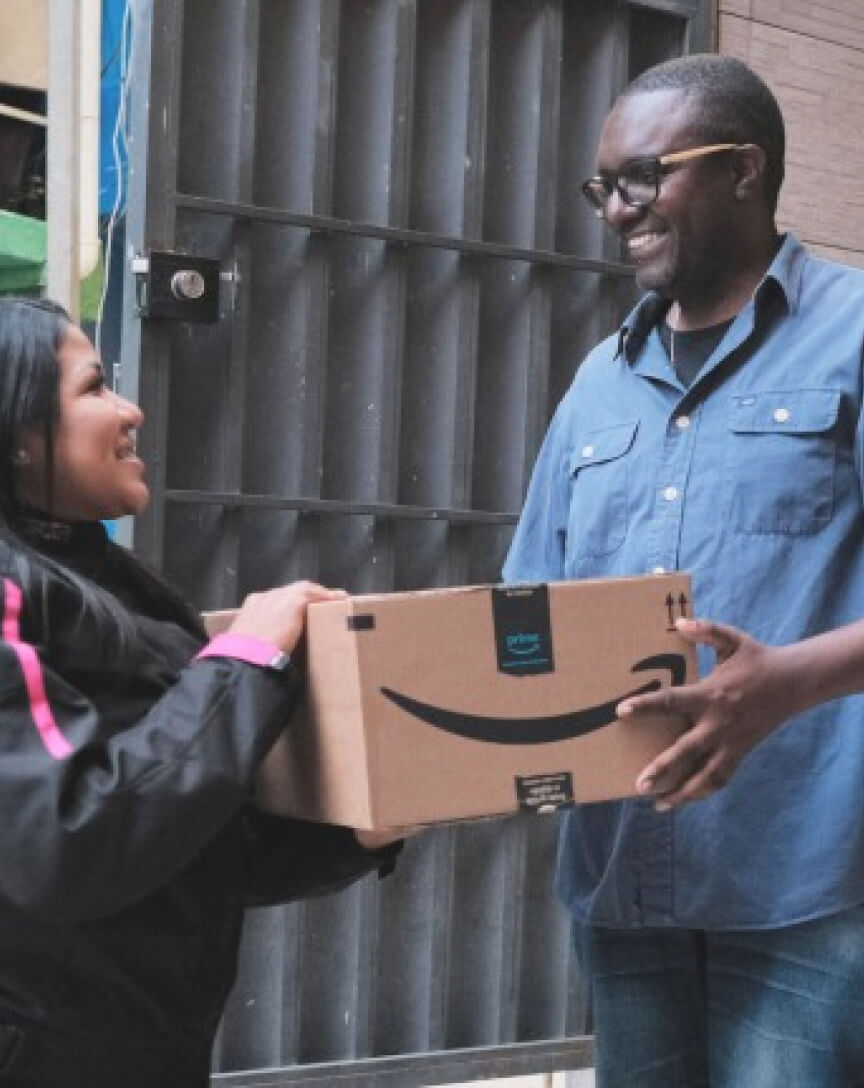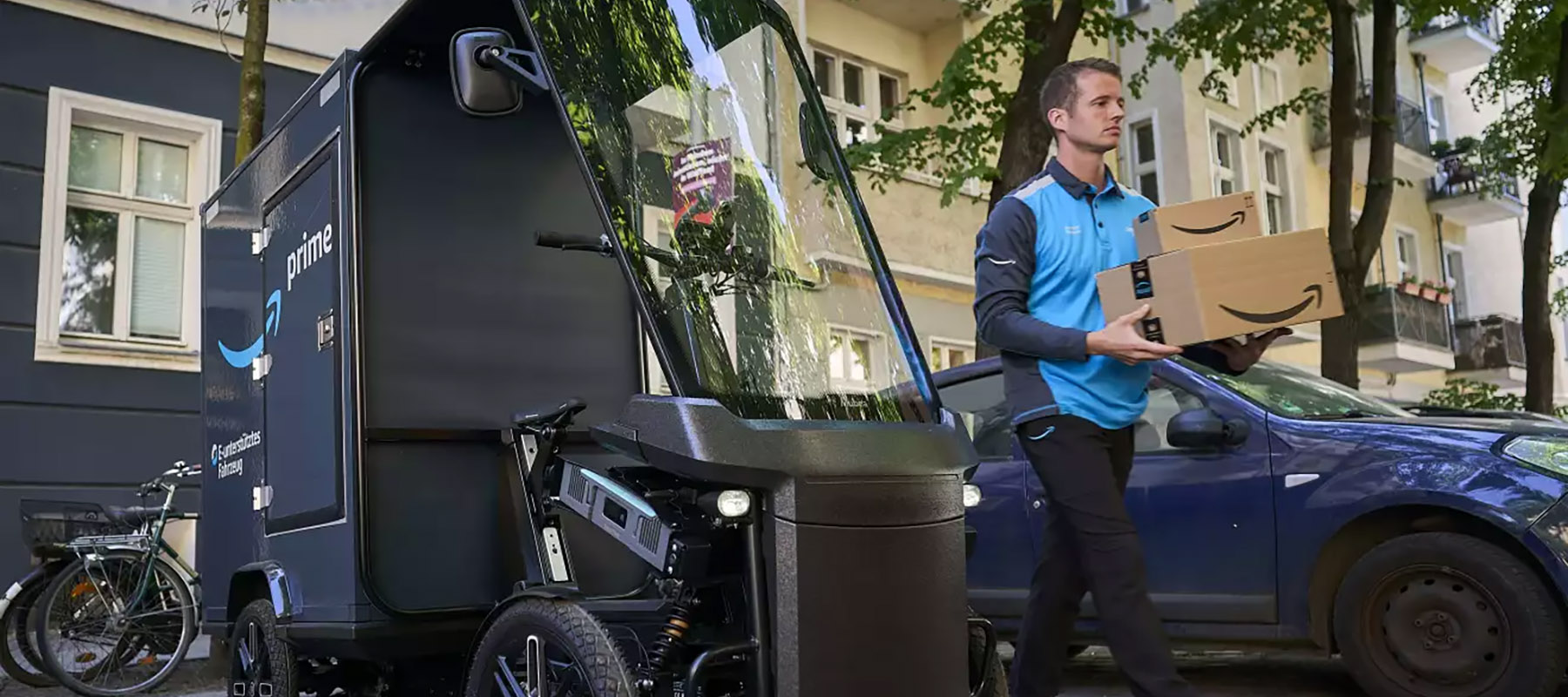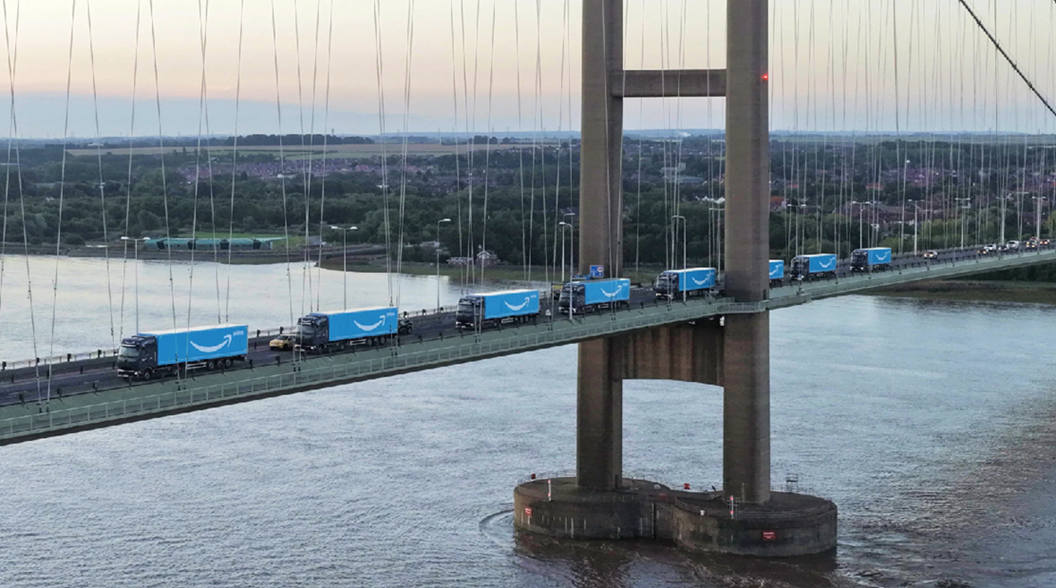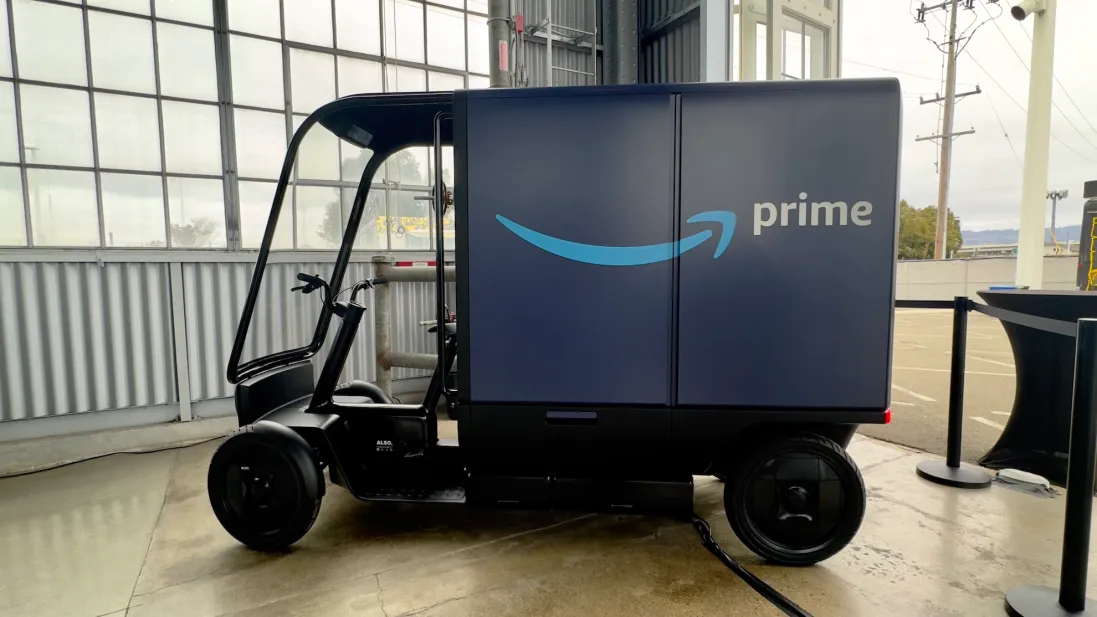Transportation
We’re decarbonizing transportation across our business by increasing fleet efficiency, expanding the use of lower-carbon fuels, and scaling electric and alternative fuel vehicles. We also partner on initiatives to reduce and avoid carbon emissions in the wider transportation industry, and engage with policymakers and other decision-makers to advance policies in support of transportation decarbonization.

Our approach
Our transportation network
-
First mile
First mile transportation is the beginning of a product’s shipment path from the manufacturer, wholesaler, or distributor to an Amazon facility via ship, airplane, train, or truck.

-
Middle mile
Packages arrive at an Amazon facility, and travel between fulfillment centers, sort centers, and delivery stations via commercial trucking, aviation, maritime, and intermodal sea and rail.

-
Last mile
Products are transported from sort centers and delivery stations to customers via delivery vans, electric delivery vehicles, and micromobility solutions.

First mile
We’re focusing on decarbonizing first mile transportation while maintaining efficiency and reliability and reducing costs. We've discovered innovative ways to prioritize ocean and rail transportation to reduce our reliance on airfreight. We’re also collaborating on initiatives to decarbonize transportation. Check out some of our featured initiatives.
[01]



-
In 2021, we were a founding member of the First Movers Coalition, a global coalition of companies leveraging purchasing power to decarbonize the world's heavy-emitting sectors. Through our active participation, we’re supporting First Movers Coalition’s goal to use maritime ships with zero-emission fuels for at least 10% of cargo shipped internationally by 2030., opens in a new tab
-
In early 2023, we co-founded the Zero Emission Maritime Buyers Alliance (ZEMBA) with the Aspen Institute, Patagonia, and Tchibo. ZEMBA seeks to accelerate commercial deployment of zero-emission shipping, enable economies of scale, and reduce maritime emissions. In 2024, we purchased lower-emission biofuel services representing the maritime transportation of more than 10% of our ocean cargo., opens in a new tab
-
For air transportation, we source lower-carbon SAF and support the development of SAF EACs. We work with peers on innovative solutions to resolve the low volume and high cost of SAF. We co-founded the Sustainable Aviation Buyers Alliance and played a significant role in the launch of the (SAFc) Registry, which aims to increase transparency related to emissions reduction claims and accelerate overall SAF deployment. In 2024, Amazon procured 3.7 million gallons of blended SAF., opens in a new tab

